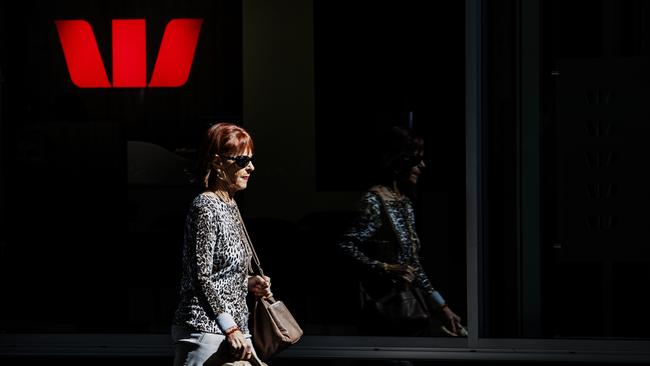Banks’ credit squeeze set to worsen
Banks will soon learn they’ve been hoodwinked by borrowers using multiple lenders, and home lending will fall even further.

Australians must accept that they set to suffer one of the more severe credit squeezes in our history.
The bullish rhetoric coming out of Canberra is historic and is not what the next few years will be about in housing and many areas of small business.
While those who suffer will correctly blame the royal commission, more accurately it is being caused by the reversal of five to 10 years of bad banking practices that inflated property prices.
The credit squeeze is already reducing dwelling prices and there is more to come and the tough times in many areas of real estate (but not all) will continue until the squeeze is reversed.
At this stage there is no crash on the horizon. But those dwelling price falls will in time reduce consumer confidence and the price of shares in companies affected by consumer confidence.
Already tough bank credit is starting to slow payments by small enterprises and that usually means that, even where amounts are agreed to be owed to the Australian Taxation Office, revenue collection slows.
Given new Treasurer Josh Frydenberg is preparing his mid-year economic statement I suggest that he checks with the ATO to see if the current credit squeeze is affecting small business taxation collection as it always has during past credit squeezes.
Let’s look first at Westpac, then the causes of the downturn and then another looming banking crisis, which goes deeper than the royal commission.
Westpac was the most aggressive of lenders to housing investors. A mate of mine went to Westpac looking to negatively gear one property and the bank manager tried to convince him to borrow for six. He didn’t.
UBS blew the whistle that the banks were not properly checking borrowers’ income and also lending more than people could afford via interest-only loans in the expectation that dwelling prices would keep rising.
They singled Westpac out as the worst offender. Westpac denied the UBS claims, pointing out payments were still on track.
According to press reports a Westpac official has given a group of its property investors less than one month to find another lender.
Westpac sent them a single page letter warning that Westpac can “no longer support our commercial relationship with you” apparently because Westpac is now a responsible lender. Westpac offers to help them find another lender. (There is no chance of that).
I have now determined that this letter was not sent out by top Westpac management, although in a strange way it is doing the investors a favour. They can get out now and either not lose or limit their losses.
All banks are scared because they could be liable for losses if they are found guilty of irresponsible lending.
So let’s look at what is turning people who a year ago were customers to whom banks were eager to finance into bad risks.
First banks, at the demand of the regulator APRA, are tightening their lending criteria via lowering their debt-to-income ratio. But they have made that debt-to-income ratio lowering worse by looking much more closely at real net income via borrowers’ expenses. They have given potential borrowers the third degree asking for hairdresser, alcohol, dining out expenses etc.
Second, the fastest growing area of loans was “interest only” and Westpac led the pack. There has been a huge crackdown and these loans are being converted to interest and principal repayments.
Thirdly, the ALP is the frontrunner to win the next election and is planning a crackdown on negative gearing and an increase in capital gains taxes. To undertake such actions at the time of a credit squeeze is very dangerous.
Finally, the costs of the banks’ overseas borrowing are rising and they are increasing variable rates.
Having been right in the past, UBS takes us to the next chapter of the unfolding drama.
UBS confirms that the ALP policies will have a big impact but are now moving to the impact of further clamps on the debt-to-income ratios and the sharing of data by banks.
In April APRA instructed bankers to embed sound home lending in their operations, including developing internal risk limits on the share of loans with debt-to-income ratios at a “very high” levels.
UBS says APRA will want to restrict loans that are six times income to 10 per cent of bank loan portfolios, which is substantially below what UBS believe is the current level --- 33 per cent.
UBS informally polled 76 clients during meetings and was fascinated most were unaware the lower debt-to-income ratios could sharply cut borrowing capacity for anyone with existing debt.
But it gets worse. Many property buyers used multiple lenders and never told their lenders about their activities with other banks.
In coming weeks banks will start sharing lending data ahead of comprehensive credit reporting from next July covering the entire financial system.
Suddenly banks will discover when they have been hoodwinked via borrowers using multiple banks.
The bottom line is that bank lending for housing will fall further and so will prices in vulnerable areas.




